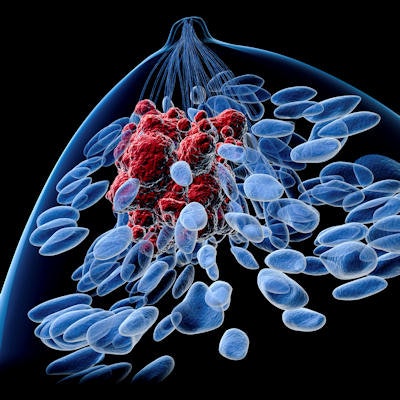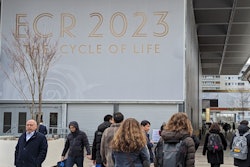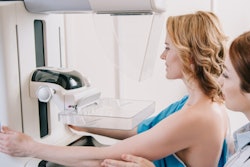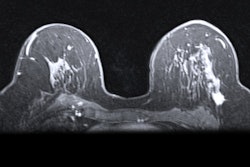
Most women with neurofibromatosis type 1 (NF1) undergo screening mammography, but many skip breast MRI, which is recommended as well, suggest findings published February 12 in Clinical Breast Cancer.
Researchers led by Dr. Kevin Yan from New York University found that over 85% of women with NF1 had at least one mammogram. However, they also found that just one-third of women between the ages of 30 and 50 with the condition underwent screening MRI, creating a screening utilization gap.
"The low utilization of MRI in our cohort limits evaluation of outcomes via this modality and suggests there may be an education or interest gap among referrers and patients regarding supplemental screening recommendations," Yan and colleagues wrote.
NF1 is a condition that manifests as changes in skin coloring and tumor growth along nerves in the skin, brain, and other parts of the body. It has a reported prevalence of one in 40,000 and incidence of one in 3,000.
Women with NF1 are up to five times more likely to have breast cancer before age 50 and have 3.5 times increased overall risk of the disease compared with women at average risk. Screening mammography is recommended for these women starting at age 30, and recent guidelines from the National Comprehensive Cancer Network (NCCN) recommend that supplemental breast MRI with contrast should be considered for women with NF1 between the ages of 30 to 50.
Yan and colleagues sought to evaluate breast cancer screening uptake and outcomes in women with NF1, assessing data collected between 2021 and 2022 from 111 women with a median age of 43.
The team found that 95 women from the total study population (86%) and 24 of 30 women under 40 (80%) had undergone at least one mammogram. But just 31 women from the entire cohort (28%) and 25 out of 76 women between the ages of 30 and 50 (33%) had undergone at least one screening MRI.
The team also found that out of 368 screening mammograms performed, 10% resulted in recall while 6% led to biopsy. As well, out of 48 screening MRIs performed, 40% led to recommended short term follow-ups, while 25% led to a biopsy recommendation.
The study results may reflect a possible lack of guideline understanding or interest by clinicians and patients in MRI as a screening tool, the investigators noted, adding that women with NF1 may face barriers to screening.
"In our cohort, for example, one patient did not receive any screening due to documented pain from neurofibroma," the authors wrote. "In addition, there has been concern about screening outcomes given the confounding nature of NF1-specific related lesions in this population."
In any case, MRI's role in and impact on this population requires more study, they concluded, and called for a thorough evaluation of screening adherence, cancer detection rate outcomes, and mortality impact.




















